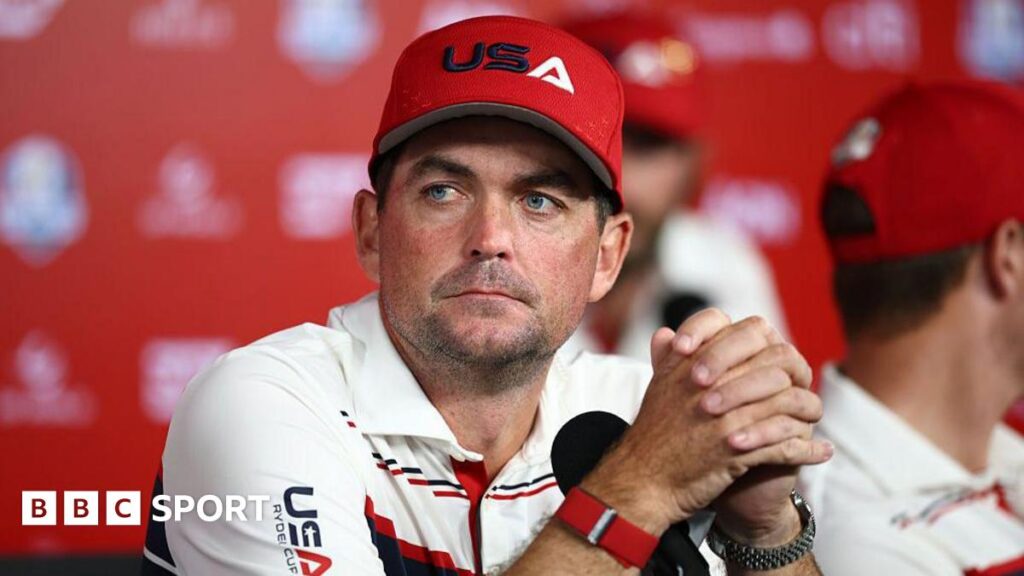Team USA’s Rollercoaster Ride at the Ryder Cup: A Comprehensive Breakdown
The Ryder Cup is one of the most prestigious events in the world of golf, bringing together the best players from the United States and Europe in a battle for supremacy. This year’s tournament, however, was a tough road for Team USA. A promising comeback on the final day ultimately fell short as they faced an uphill battle against a formidable European team. This article delves into the series of events, emotions, and future implications following an unforgettable Ryder Cup experience.
The Crucial First Two Days
Despite a valiant attempt at a dramatic comeback, Team USA found themselves in a challenging position after the first two days of play. Europe established a commanding lead of 5½-2½ on Day One, extending this gap to 11½-4½ by the end of Day Two. This historical deficit represents the largest lead entering the final day of modern Ryder Cup history, leaving Team USA grasping for hope as they prepared for the singles matches.
Team USA’s Resilience: The Final Day’s Performance
The final day of competition saw Team USA winning 8½ points from the twelve singles matches—a commendable effort that showcased their resilience and skill. Yet, it was ultimately not enough to overcome the significant disadvantage they faced. The heart and hustle displayed on that final day demonstrated the fire and passion that Team USA always brings to the tournament.
A Reflective Moment for Captain Keegan Bradley
Keegan Bradley, who was expected to take on a dual role as player-captain, expressed his disappointment over the initial rounds. "You put so much into it, and you have all this planning, and the first two days went as poorly as we could have ever thought,” Bradley shared, highlighting the weight of expectation and the burden of leadership. His insights offer a window into the emotional landscape that often accompanies such high-stakes competitions.
The Decision to Step Back
Earlier this year, Bradley had a "change of heart," opting against playing in New York for the tournament. This decision was revisited when he witnessed the fervor of his teammates as they prepared to compete. “The first practice day, I was out on the tee, and I was watching the guys walk down the fairway all together, and I said to myself ‘I wish I was playing — that’s what it’s all about. I’m missing out,’" he confessed, revealing the internal conflict of a leader torn between duty and desire.
Physical Exhaustion: The Reality of Competition
Yet, despite his longing to join his teammates, Bradley acknowledged that he made the right choice by prioritizing his responsibilities as captain. With fatigue weighing heavily on him, he stated, “I just didn’t think I could do both jobs.” This realization underscores the immense pressure and physical demands associated with competing at such a high level, especially in a team-focused environment like the Ryder Cup.
The Weight of History: Bradley’s Ryder Cup Journey
As the competition came to a close, it was not lost on Bradley that this marked his third defeat in the Ryder Cup as both a player and captain. Memories of previous losses lingered, with a particularly poignant mention of the 2012 defeat at Medinah. He openly admitted, “I still haven’t unpacked my suitcase from the 2012 defeat,” reflecting on the emotional toll past tournaments have had on him and the significant meaning he attaches to this prestigious event.
Unbroken Spirit: Looking Ahead
Despite the weight of past failures, Bradley remains optimistic about future opportunities. With the next Ryder Cup scheduled for September 17-19, 2027, at Adare Manor in Ireland, he affirmed his commitment to making himself available for future tournaments. “I still want to be a part of it,” he declared, embracing the idea of redemption and perseverance that is central to any athlete’s journey.
The Path Forward: Lessons Learned
The Ryder Cup is more than just a competition; it’s a learning experience for players and captains alike. Team USA must take valuable lessons away from this year’s tournament, focusing on better preparation and more cohesive strategies in future matches. By analyzing what worked and what didn’t, they can hone their skills for a more formidable presence next time.
Conclusion: The Spirit of the Ryder Cup
As we look forward to the next Ryder Cup with optimism, the spirit of competition continues to inspire fans and players around the world. The stakes are high, and the emotions run deep, but it’s this very intensity that makes events like the Ryder Cup so captivating. Team USA’s journey may not have ended in victory this time, but their resilience and determination exemplify the essence of sport—where every setback is an opportunity for a stronger comeback.
In summary, Team USA and Keegan Bradley’s experience during this year’s Ryder Cup serves as a poignant reminder that while not every journey ends in triumph, the pursuit of excellence and camaraderie will always reign supreme. The hope is that they take this experience, channel it into growth, and return even stronger for their next challenge on the grand stage of golf.


